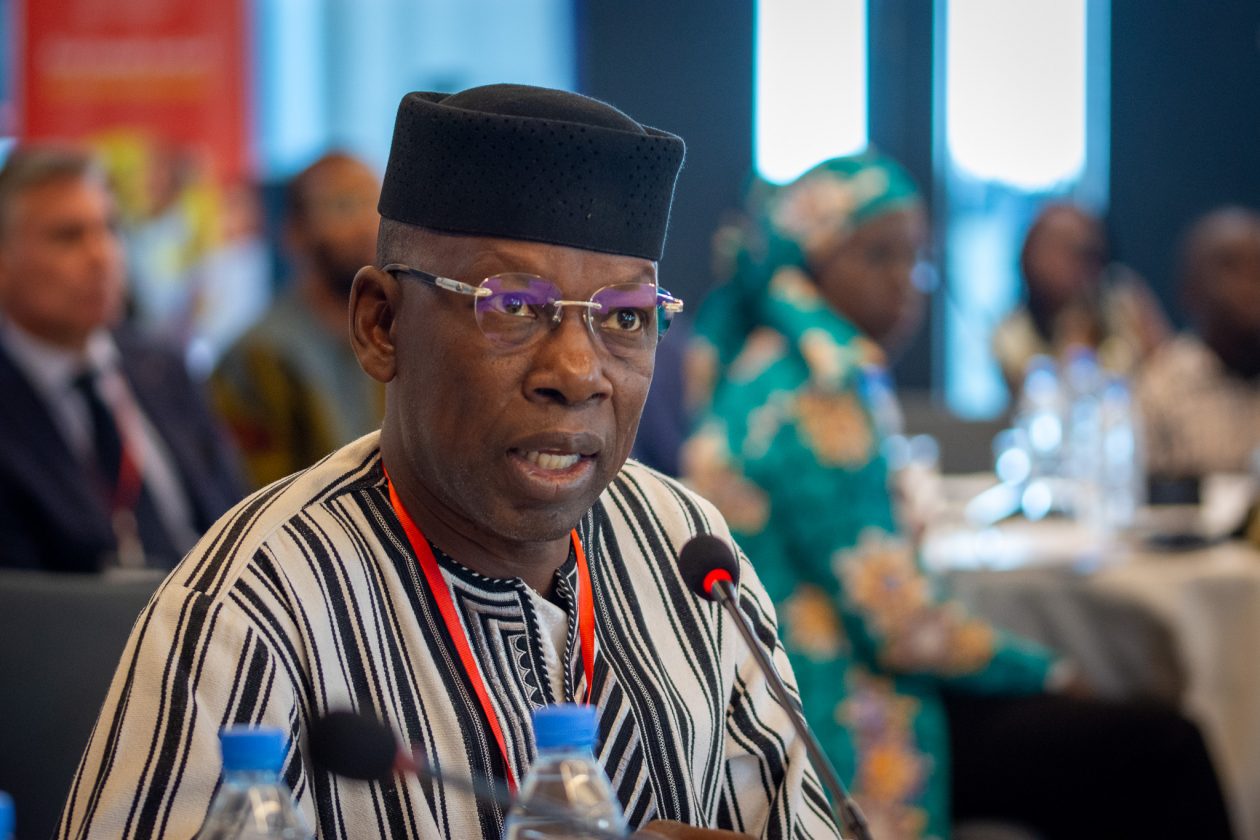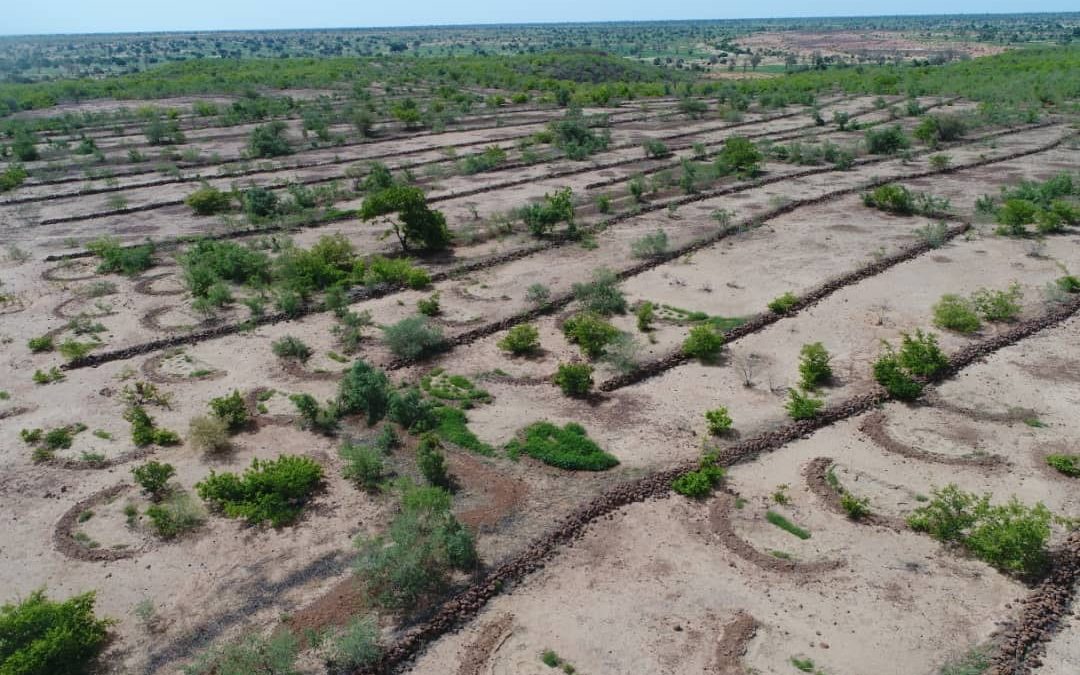Resilience in the Sahel: How Universities are in Strengthening Food and Agricultural Security
A pioneering initiative in the Sahel, the Réseau des Universités du Sahel pour la Résilience (REUNIR – Sahel Universities Network for Resilience) highlights the impact of collaboration between the academic sector and international organisations in efforts to strengthen food and agricultural resilience. Led by Professor Toguyeni, the network brings together universities from five Sahelian countries to share experiences and take coordinated action. This synergy between university expertise and strategic partnerships, in particular with the World Food Programme (WFP), places research and innovation at the heart of sustainable solutions for communities.

Professor Aboubacar Toguyeni is the head of the Natural Sciences and Agronomy doctoral school at the Nazi Boni-Bobo-Dioulasso University in Burkina Faso. He is executive secretary of the Réseau des Universités du Sahel pour la Résilience (REUNIR), which brings together 7 universities in 5 countries (Burkina Faso, Chad, Mali, Niger and Senegal).
In this interview, we explore the various facets of this collaboration, from the challenges of land degradation to community training. Professor Toguyeni emphasised the shared commitment to food self-sufficiency and a better quality of life in the Sahel.
How did the Sahel Universities Network for Resilience emerge?
Prof. Toguyeni: This network originated from a partnership that the various universities had on an individual basis with the WFP country offices on resilience issues. These countries are facing the same problems. Which is why we decided to pool our efforts to share experience and build resilience in the Sahel region.
What added value do universities and researchers bring to these questions on resilience, in particular food and agricultural resilience?
Our students carry out field internships during which they are in contact with communities. It is an opportunity for us, as researchers, to get a close-up view of the reality in these communities and to work with them to build resilience and programmes that are better adapted to the real context of these populations.
In your opinion, what are the priority areas for action to help people build resilience?
Today, we have a drop in production at all levels, leading to food and nutritional insecurity. Research is carried out on soil fertility and on improving seeds to increase yields. In the Sahel, land degradation is a crucial problem. This generates conflict not only between farmers, but also between farmers and livestock breeders, because production space is shrinking. Our research led to progress on land restoration. This is extremely important, as it increases the productivity of abandoned land by revitalising the soil and extending production for farmers and livestock breeders. Smart farming and water management are also extremely important for improving productivity. This is one of the research programmes we are working on.
We are also working on product processing to ensure sustainability. Some products are only available for specific periods of the year. Thus, processing these products allows us to spread availability throughout the year, which is extremely important. In addition, livestock is expensive and some families no longer have access to meat. We can improve the availability of fish through better management and innovative production systems. Fish can be dried and preserved as is or processed into fishmeal. Fishmeal provides the animal proteins that the population needs.
There are huge differences between families with the same level of income: some have malnourished children, others do not. Why? Because some families are familiar with the natural ingredients of a balanced diet, while others are not. Within a given country, there are areas where a particular plant is used in food, while in another part of the country, people don’t even know that this plant can be used in food. These are the factors that can lead to food and nutritional security.

As part of your fieldwork, are you experiencing any difficulties in accessing some regions? Did you implement any alternatives so that you could still take these people’s views into account?
We try to send our students as close as possible to the people who have been displaced or are living in difficult areas. These difficulties do not mean that we should abandon them. The safety of our students is our responsibility, so we assess the risks, while trying to continue to work with the local population. We have focal points from technical structures or the WFP who are present in the field and with whom we work to gather certain types of information. We must be as close as possible to these communities to maintain a dialogue, and our students are working towards this goal.
What do you think of the relevance of this collaboration between your universities network and an organisation like the WFP?
It is a win-win partnership. In the past, everyone thought of the WFP as the fire brigade: the programme distributed food to hungry people and then disappeared.
Today, the approach has changed: the WFP is working with universities to increase people’s resilience, for example, in the case of land restoration, by giving grants to students to carry out fieldwork.
We also train our students in the tools used by the WFP: for example, we have integrated the 3PA tools into our training curricula, which means that our students are directly operational when they go out into the field. This improves the quality of work and ensures the continuity of activities.
Working with the WFP means we can improve their actions in the field. For example, we work with them to monitor the activities they carry out in the field, to show in concrete terms what has been done and the full scope of their work with communities.

Regarding land restoration, which practices have impressed you the most?
Various techniques were used to restore the eroded land, such as half-moons and zaï (a seeding technique). These techniques, used together and on a large scale, contribute to the success of land restoration. Along with a delegation from East African countries, we visited restored land in Dosso, in south-west Niger, as part of the partnership between the WFP and Niger’s universities. The members of the delegation were very pleased to see that degraded land can be restored, and left determined to develop the same approach in their own countries.
To find out more

